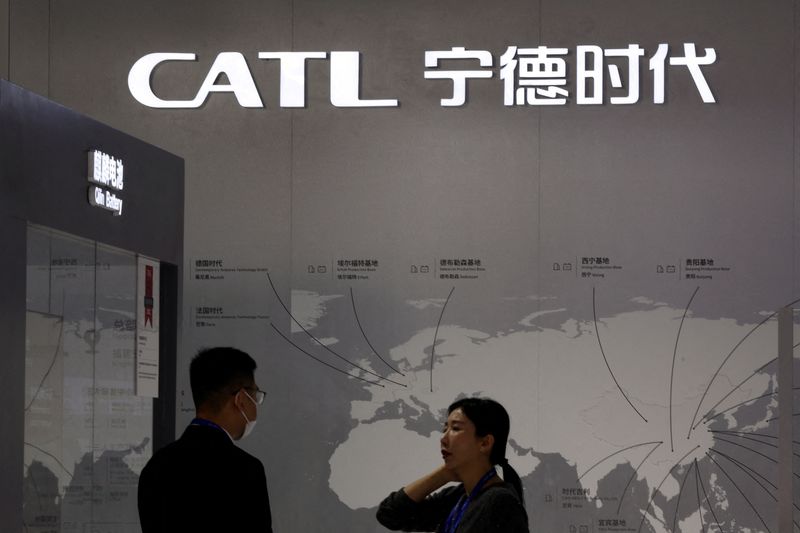BEIJING (Reuters) -Chinese battery giant CATL on Thursday launched its first battery product focused on extended-range hybrids at a time when this category of electrified cars is seeing the fastest growth in sales among all segments.
The battery, known as Freevoy, is the world’s first hybrid battery with a range of over 400 km (249 miles), according to CATL’s Gao Huan, chief technology officer of its electric vehicle business in China.
Gao told a press conference in Beijing that Freevoy was being used by various Chinese EV brands, including Li Auto, and would be installed in models made by industry giants, such as Geely and Chery.
Nearly 30 extended-range hybrid models will be equipped with the CATL Freevoy battery, Gao said.
An extended-range hybrid, or EREV, has a larger battery pack than other hybrid cars and runs on electricity only, with its gasoline engine serving as a power bank to recharge the batteries when they run low.
More Chinese consumers favour EREVs as they offer longer driving range than EVs and can cost less than gasoline cars.
Sales of EREVs have more than doubled in the first nine months this year compared to the same period in 2023, with more than 10 new models launched by Chinese brands including Stellantis-backed Leapmotor and Li Auto this year.
The strong demand has prompted CATL to develop the battery for automakers in China and potentially overseas.
CATL has also pioneered packing sodium-ion batteries together with lithium-ion batteries in the Freevoy battery, which can guarantee discharging in extreme cold, Gao said.
The battery maker has been weathering the impact of an ongoing price war in the EV sector, with an increase in third-quarter profit growth.
Thanks to a cost advantage and a diversified client base, CATL strengthened its lead in the Chinese market, boosting its share by 3.1 percentage points in the first nine months of the year, according to data from the China Automotive Battery Innovation Alliance.
By comparison, the second-ranked BYD, which supplies nearly all batteries to its own EVs, and third placed CALB saw their share shrinking by 4.28 percentage points and 1.98 percentage points, respectively.
(Reporting by Eduardo Baptista in Beijing and Zhang Yan in Shanghai; Editing by Christian Schmollinger and Tomasz Janowski)


Leave a Comment